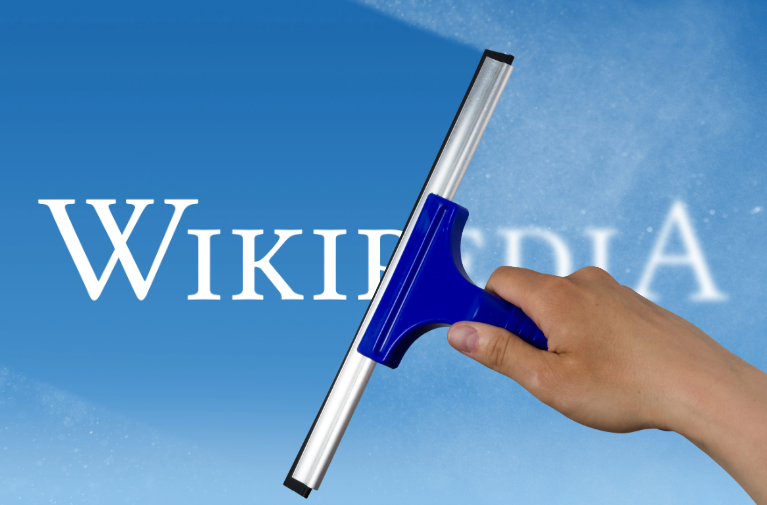Scandals Erased, Editors Paid: How Big Law Firms Try to Control Their Wikipedia Pages
New York, NY – September 5, 2025 – A recent investigation by Law.com has exposed how major law firms are manipulating their Wikipedia pages to suppress negative information and polish their public image, raising ethical questions about transparency and the integrity of one of the world’s most visited websites. The report, published on September 4, 2025, details how some firms allegedly hire paid editors to scrub scandals, litigation losses, and other controversies, flouting Wikipedia’s strict policies against paid editing and conflicts of interest.
The Investigation’s Findings
Law.com’s analysis revealed that several prominent law firms, particularly those in the Am Law 100, have engaged in covert efforts to control their Wikipedia narratives. Tactics include hiring freelance editors or public relations firms to remove references to high-profile lawsuits, ethical violations, or partner misconduct, while emphasizing awards, rankings, and pro bono work. The investigation identified at least a dozen firms suspected of such practices, though specific names were withheld due to ongoing inquiries by Wikipedia’s volunteer moderators.
Wikipedia’s guidelines prohibit paid editing without clear disclosure and require neutrality, but the report found that some firms exploit loopholes by funneling payments through third-party PR agencies or using pseudonymous accounts. One case highlighted involved a New York-based firm that allegedly paid an editor $10,000 to remove details of a 2023 sexual harassment settlement. Another firm reportedly coordinated edits to downplay a failed merger attempt, replacing critical content with neutral or positive framing.
How It Works
Paid editors often operate through platforms like Upwork or Fiverr, offering “Wikipedia management” services for fees ranging from $500 to $20,000, depending on the scope of edits. These editors, some of whom are experienced Wikipedia contributors, use their knowledge of the platform’s rules to make changes that appear legitimate, avoiding detection by volunteer moderators. Techniques include citing obscure but verifiable sources to justify edits or engaging in “edit wars” to overwhelm unpaid contributors who challenge their revisions.
Law.com’s investigation, which reviewed edit histories, user talk pages, and off-platform communications, found that firms often target pages during periods of low moderator activity, such as holidays, to minimize scrutiny. Some editors were instructed to create “stub” articles for lesser-known partners or practice groups, boosting the firm’s online presence while diverting attention from negative content.
Wikipedia’s Response
Wikipedia’s volunteer community, overseen by the Wikimedia Foundation, has struggled to curb these practices. In response to the Law.com report, the Foundation issued a statement on September 4, 2025, affirming its commitment to neutrality and transparency. “We take allegations of paid editing seriously and are investigating the accounts involved,” the statement read. Several suspected editors have been banned, and the Foundation is exploring AI tools to detect undisclosed paid contributions.
However, the decentralized nature of Wikipedia’s editing process makes enforcement challenging. Volunteer moderators, often outnumbered, rely on manual reviews and community discussions to identify violations. A post on X by a Wikipedia editor lamented, “Big law firms have deep pockets and deeper motives. It’s a constant battle to keep their pages honest.”
Ethical and Legal Implications
The revelations have sparked debate about the ethics of manipulating public information. Legal ethics experts argue that such actions may violate professional conduct rules, particularly if firms misrepresent their records to attract clients. “This isn’t just about optics—it’s about deceiving the public and potentially clients,” said Ellen Yaroshefsky, a legal ethics professor at Hofstra University.
The controversy also ties into broader concerns about Wikipedia’s reliability. Recent investigations, including a U.S. House Oversight Committee probe launched in August 2025, have scrutinized the platform for alleged bias and manipulation by external actors. While that inquiry focused on anti-Israel bias, the law firm scandal highlights similar vulnerabilities to coordinated editing campaigns.
Law Firms’ Defense
Some firms implicated in the report denied wrongdoing, claiming that their Wikipedia edits were part of legitimate reputation management. A spokesperson for one unnamed firm told Law.com, “We ensure our page reflects accurate, verifiable information about our achievements and services. Any suggestion of impropriety is unfounded.” Others argued that Wikipedia’s open-editing model invites contributions from all stakeholders, including businesses seeking to correct inaccuracies.
However, critics counter that selective editing to omit scandals undermines public trust. “Clients and the public deserve to know the full picture, not a sanitized version,” said a former general counsel quoted in the report.
Broader Context
The Law.com investigation comes amid growing scrutiny of Wikipedia’s role as a gatekeeper of public information. With over 6.7 billion monthly visitors, the platform’s influence is undeniable, making it a prime target for image-conscious industries like Big Law. The report also parallels concerns raised in a 2024 Pirate Wires article about ideological bias in Wikipedia editing, suggesting that law firms’ tactics are part of a larger trend of narrative control.
As Wikipedia tightens its oversight and regulators consider stricter rules for online transparency, the scandal underscores the tension between corporate reputation management and the public’s right to unfiltered information. The outcome of ongoing investigations by Wikipedia moderators and potential regulatory actions could reshape how law firms—and other industries—approach their digital presence.
Sources: Law.com, posts on X, Pirate Wires
